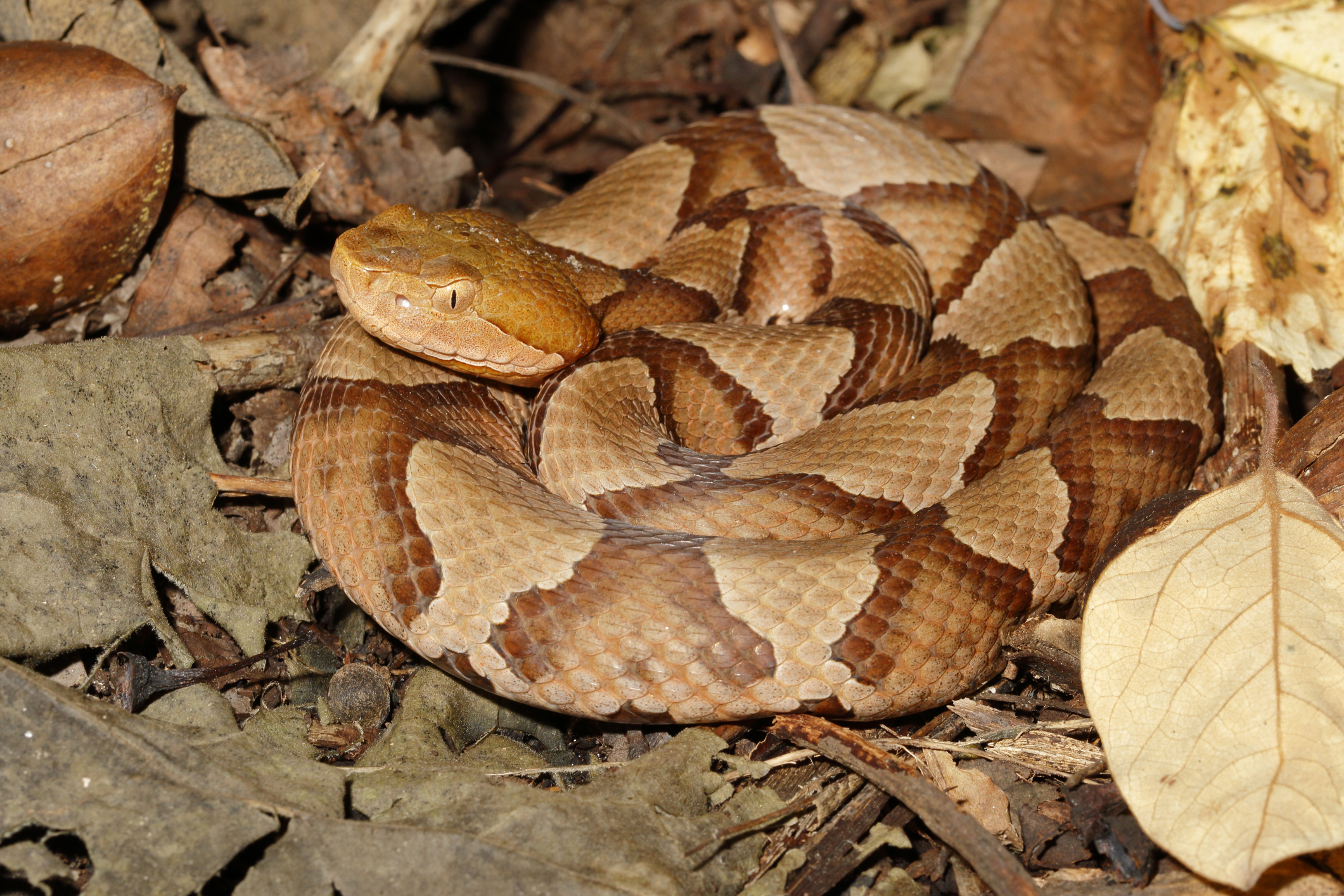FIND YOUR LOCAL
HUGHES SERVICE CENTER
Agkistrodon contortrix
These venomous snakes are common throughout North America, but are most frequently found in the South. Unlike many venomous snakes, a copperhead has a distinguished neck, meaning you can see the triangular shape of its head, and it has dark brown rings around the length of its body. It’s important to be aware of their distinctions, as they bite more people than any other snake in North America.

| Color | Light brown with darker, irregular brown bands around the body, copper-colored head |
| Legs | |
| Shape | |
| Size | 61 to 90 centimeters (24 to 36 inches), approximately .5 to .75 lb |
| Antennae | False |
Copperheads inhabit the United States, from the Florida panhandle to Massachusetts and as far west as Nebraska. They reside in various habitats, from terrestrial to semiaquatic, including rocky, forested hillsides and wetlands. They’re known to occupy abandoned and rotting wood, sawdust piles, or construction sites.
Like other snakes, copperheads mainly eat mice and small birds, lizards, small snakes, amphibians, and insects. Younger copperheads stick primarily to insects, particularly caterpillars, and use their yellow-tipped tails as a worm-like lure to attract prey.
Copperheads are primarily ambush hunters, subduing their victims with venom before swallowing them whole. When attacking larger prey, the snake bites and then releases immediately, allowing the venom to take effect. They later track the injured prey. Smaller prey are usually held in the snake’s mouth until it dies.
Copperhead snake venom is not especially potent, and their bites are rarely deadly. However, children, the elderly, and immunocompromised people are most at risk. Copperheads are not aggressive and typically deliver warning bites only when threatened.
If you see a copperhead in or around your home, don’t try to dispose of it, as you may risk getting bitten. Contact Hughes Exterminators for copperhead control and removal.
If you encounter several of these snakes, try eliminating their food source via rodent control, sealing any entry points in your windows and walls, keeping your lawn trimmed and free of debris, and using snake repellent.
After you submit the information below, a trained professional in your area will get in touch within 1-2 business days to set up a date & time that is convenient for you.